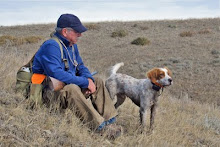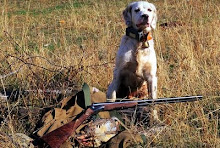
My dogs have ocassionally suffered lapses of judgement that resulted in an unpleasant ride back to camp and a session or two of deskunking. Here is a tried and true recipe for a deskunking bath that really works. Forget tomato juice...
1/4 cup baking soda
1 teaspoon dishwashing detergent (liquid soap like Dawn, not machine dishwashing detergent)
1. Mix and Apply Immediately.
2. Wait 5 minutes and rinse with cold water.
3. You may need to repeat the process again.
2. Wait 5 minutes and rinse with cold water.
3. You may need to repeat the process again.
I have used a wheel barrow and garden hose to take the whole mess away from the cabin. Afterwards, just a faint skunk aroma as the dog passes close by. This lasts a couple of days.
According to my source - I'd like to give some credit here, but I cannot recall their name - the origin of the peroxide/ baking soda method of de-skunking a dog first appeared in Chemical & Engineering News, the weekly publication of the American Chemical Society. An industrial chemist developed the method because he was involved in cleaning a type of chemical known as a mercaptan. Mercaptans are rotten, smelly, sulfur containing compounds (Rotten eggs for example). Skunk stink would also be chemically classified as a mercaptan. The method of cleaning these mercaptans involved using a concentrated form of peroxide (an oxidizing agent that oxidizes the mercaptan to non-smelling sulfur compounds ) applied in a basic (high
pH) solution. He adapted this industrial method for pet use by using 3% hydrogen peroxide in a baking soda solution ( high pH). The addition of liquid dish detergent just makes the application easier and keeps the peroxide in contact with the hair a bit longer so that the oxidation can occur.
pH) solution. He adapted this industrial method for pet use by using 3% hydrogen peroxide in a baking soda solution ( high pH). The addition of liquid dish detergent just makes the application easier and keeps the peroxide in contact with the hair a bit longer so that the oxidation can occur.









No comments:
Post a Comment